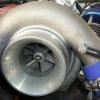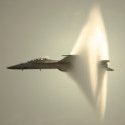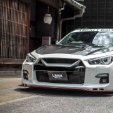GT3076 V G30-770 dyno results back to back - FJ20
Announcements
-
Similar Content
-
Latest Posts
-
By drifter17a · Posted
Hi all my r34 has been off for over a year with occasional start. Today I noticed a lot of noise from engine bay when turning the wheel as if power steering has no fluid . Checked and loads of fluid had flowed out of the resorvoir. Has anything been blocked/ destroyed? Maybe fluid can’t get into pump and flowing out ? could it need bleeding by turning steering side to side? thoughts? -
so will this basically make the gearbox decent? because it takes imo so long to shift gears and even drop back. the response when you have it in manual mode is laot better but even the shift is like not instant will this change that?
-
also the 400R will probley hold its value more but dont forget there is a Nismo model 400R aswell.
-







Recommended Posts
Create an account or sign in to comment
You need to be a member in order to leave a comment
Create an account
Sign up for a new account in our community. It's easy!
Register a new accountSign in
Already have an account? Sign in here.
Sign In Now